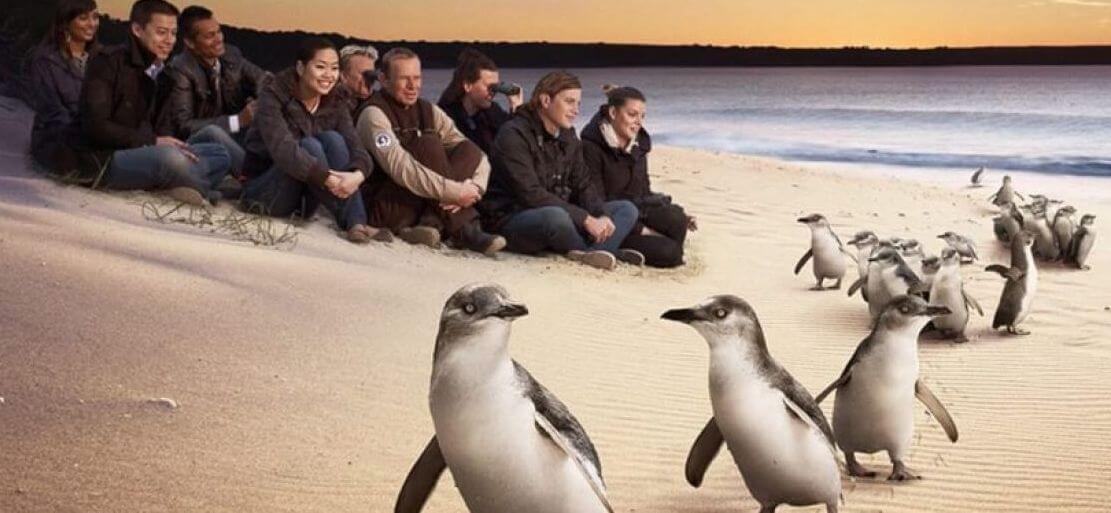
- Blog
- No comments
These days we are all increasingly aware that we need to make changes to our lifestyles in order to preserve our planet for future generations. Because of this, travellers all over the world are becoming more and more interested in sustainable travel options. This is particularly topical in Australia, as we have such a rich and diverse natural environment as well as a long, proud indigenous culture.
But what does eco tourism mean? How can you make sure you are travelling responsibly and ethically? And what impact will ecological measures have on the future of travel?
Here we take an in-depth look at the issue of eco tourism, enabling you to become more conscious of sustainability and make more ethical travel choices.
What is eco tourism?
Put simply, eco tourism puts measures in place so that the travel experiences of today can still be enjoyed by others long into the future. There are three important aspects to this, all of which have a direct impact on each other:
- Social
- Economic
- Environmental
When the right systems and procedures are put in place, sustainable travel becomes possible, so there are no negative social, economic or environmental impacts on the places visited by tourists. This is what eco tourism is all about.
Tour companies and accommodation providers are now more aware than ever before about the impact that their activities have on the places where they operate, and the cultures of those places. This is why many of us are striving to make sustainable travel a core value, integral to what we do and the travel experiences we provide. Tourism sustainability should be a major part of corporate social responsibility for all travel providers if we want our industry to thrive, and to enable us to protect the planet and its people so we can continue to offer outstanding travel experiences for many years to come.
What does ecotourism mean for travellers in practical terms?
Travellers are passionate about the world and its peoples, which is why they want to experience so many different aspects of our planet. Because of this, there has been a significant shift in the kind of holidays many of us want to experience. The concept of the environmental tourist is not new, but it has gained massively in popularity over recent years. Many people, younger people in particular, are now keen to avoid the standard tourist hotspots in search of richer, more authentic travel experiences where they can actually learn about local culture and the natural world.
If you are an environmental tourist, you believe in doing everything you can to preserve the planet’s resources and ensure all workers are treated ethically and fairly. You want to reduce your carbon footprint to becacome carbon neutral, while travelling, boost local economies and immerse yourself in nature and wildlife. You aim to make a positive impact on all the places you visit without causing any negative effects.
This is why eco tourism is now a booming industry. For it to work well into the future, it has to be based around a number of core concepts which are central to travelling in an environmentally-friendly, ethical way. But what are these concepts, and what does each of them mean for you as a traveller?
1. Recognise and respect indigenous populations
Many of Australia’s most beautiful natural environments, and some of our most popular tourist destinations, are the traditional homelands of Aboriginal peoples. An important part of tourism sustainability is recognising the cultures of our indigenous peoples and showing respect for their traditions while visiting these sites.
If you are visiting an indigenous homeland, it is important to do some research before you go. Read up on local customs and traditions to make sure you are showing respect at all times while you are there. Visit heritage centres dedicated to indigenous culture, so you can find out about the history of the area and the peoples who have populated it throughout the centuries. Many heritage centres will also give the opportunity to try your hand at some traditional cultural activities, which is always an enjoyable and valuable experience.
Preserving the natural environment is at the very heart of respecting local traditional cultures. It should go without saying not to drop litter and to care for the plant and animal life in the area. In addition, check whether or not it is acceptable to take photographs, especially if you are visiting religious sites or examples of ancient indigenous art. Cultural considerations always have to come before your Instagram feed!
2. Leave no trace of your visit
One of the most essential concepts of eco tourism is that it preserves the resources of the planet for future generations. This means you should leave every place you visit in exactly the same condition, or if possible better, than when you arrived.
This is particularly important when it comes to visiting less populated, natural landscapes which are off the beaten track. Much of our land is already swamped with ever-expanding cities, so it is vital that we preserve what remains of our natural environments, so their resources are not drained, natural wildlife habitats are not destroyed, and the beauty of these places can still be enjoyed long into the future.
This means you need to think about the way you travel and the actions you take while you are exploring the natural world. Wherever possible, walk or cycle rather than travelling by motorised vehicle. Travelling in small groups also helps, as it means natural sites do not become overcrowded with visitors. Always take all litter home with you. Don’t do anything to disturb the natural environment – never be tempted to pick flowers, and make sure you are calm and quiet, so you do not scare any animals or birds.
3. Give something back
Sustainable tourism is about immersing yourself in the culture of the place you are visiting. If you want to make a positive impact while travelling, you can take steps to protect the environment or help out local people.
Things you can do to give something back include volunteering for a local charitable organisation in the community, or getting involved with a tree-planting scheme to make the local economy more sustainable. Even picking up litter everywhere you see it will make a positive impact, and will be greatly appreciated by residents.
4. Care for animals
Native wildlife is often one of the highest priorities for environmental travellers, and learning about the animals found in the local area is always a rewarding and unforgettable experience. But if you are passionate about caring for animals, it is important to do your research when deciding which attractions to visit and activities to choose.
While zoos are popular attractions, not all of them are run ethically. It is much better to visit a local conservation centre, as the animals here will be treated well. These centres are dedicated to preserving natural wildlife, so they are usually involved in breeding programs and other means of caring for native animals. They are also highly educational, enabling you to learn more about the animals which are native to the region and how you can get involved in protecting them.
In addition, if you are buying souvenirs, always avoid anything made with animal parts, as these are unethical and often illegal.
5. Support the local economy
In the past, tourism has often been a drain on local communities rather than boosting them. If you want to travel responsibly, you should think about how you can support the local economy. A great way to do this is by only buying from locally-owned businesses rather than large multinational chains. The whole point of travelling is to try something new, so avoid the names you know, and choose local restaurants and shops. The locals will thank you, and your travel experience will be much more authentic.
In addition, always choose travel companies which hold sustainability certifications and employ local people as guides. This ensures that the tourism industry is actually contributing to the local economy by providing people with jobs and showing respect for the residents of the area. Also, you will learn so much more this way, being able to experience local culture first-hand with an expert!
Find out more about eco tourism
AU Private Tours is dedicated to encouraging and providing sustainable travel. We are extremely proud that our efforts in this area have recently been recognised, as four of the tours we provide have been awarded sustainability certifications from Nature Tourism. This demonstrates our absolute commitment to tourism sustainability, and the continued efforts we are making to ensure that our tours have positive environmental, social and economic effects on the areas and communities we visit.
If responsible travel is important to you, and you would like to visit some of the most beautiful parts of Australia in an ethical and respectful way, please contact us for more information about what we do.


